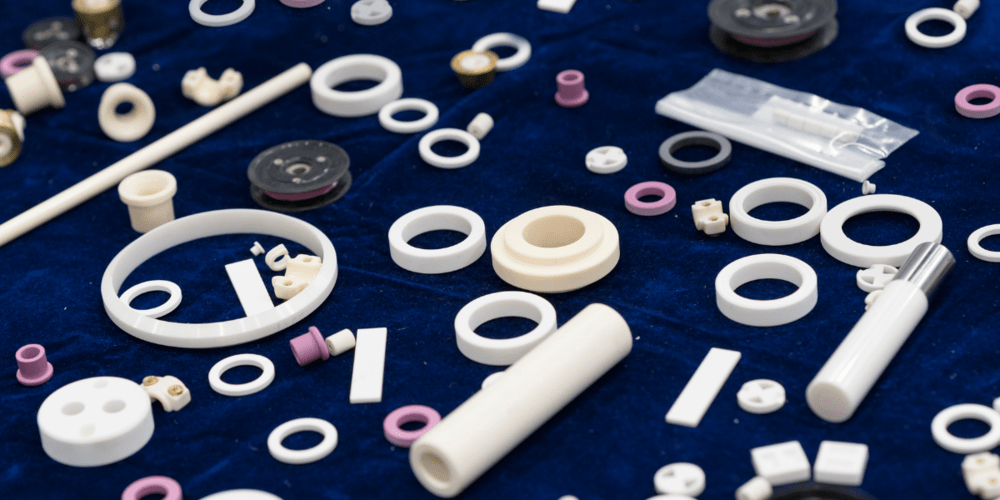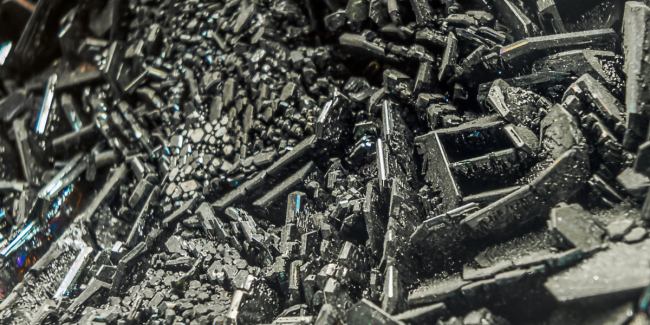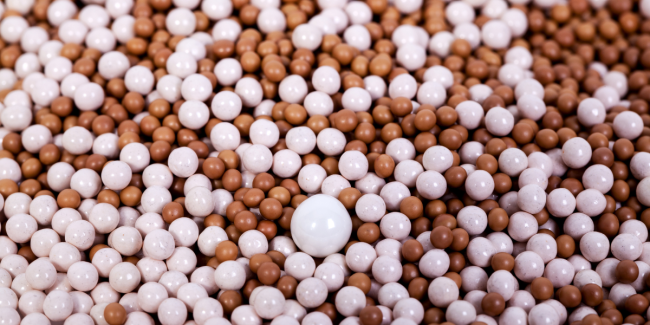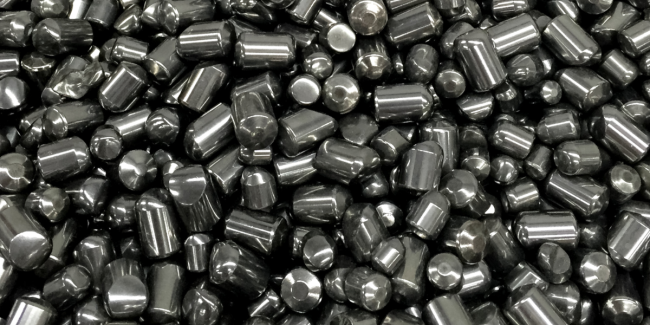
Common Industrial Ceramic Materials and Their Properties
Industrial ceramics refer to a specialized category of ceramic materials designed and manufactured for industrial applications. These ceramics are engineered to exhibit specific properties such as high mechanical strength, thermal stability, wear resistance, electrical insulation, and chemical inertness.
Types of Ceramics for Industrial Applications
Ceramics are used in various industries, including automotive, aerospace, electronics, energy, and manufacturing, for applications such as bearings, seals, cutting tools, refractories, and thermal insulators. They are critical in enhancing efficiency, durability, and performance across various industrial processes and applications.
Here are some common types of ceramics used in industrial applications:
Aluminum Oxide (Al2O3)
Alumina, or aluminum oxide, is one of the industry’s most widely used ceramic materials. It has the following properties:
- High Hardness and Wear Resistance: Alumina is extremely hard, making it ideal for wear-resistant applications such as bearings and seals.
- Excellent Thermal and Electrical Insulation: It exhibits exceptional thermal and electrical insulation properties, making it suitable for electrical components and high-temperature environments.
- Corrosion Resistance: Alumina is highly resistant to chemical corrosion, ensuring durability in harsh conditions.
Typical alumina applications include wear-resistant components like bearings, abrasive tools such as grinding media, and electrical insulators.
Silicon Carbide (SiC)
Silicon carbide is known for its outstanding hardness and strength, along with the following properties:
- Extreme Hardness: Silicon carbide is one of the hardest materials known, making it suitable for cutting tools and abrasives.
- High Thermal Conductivity: It exhibits excellent thermal conductivity, allowing for efficient heat dissipation in high-temperature applications.
- Resistance to High Temperatures and Corrosion: Silicon carbide maintains its strength and integrity at elevated temperatures and is resistant to chemical corrosion.

Silicon carbide finds applications in refractories for furnaces, cutting tools, abrasives, and semiconductor components.
Fused Silica (SiO2)
Fused silica, also known as fused quartz, is a high-purity form of silica with exceptional optical and thermal properties. Characteristics of fused silica include:
- High Purity and Transparency: Fused silica exhibits excellent optical clarity and transparency over a wide range of wavelengths.
- Low Thermal Expansion: It has a low coefficient of thermal expansion, making it suitable for high-temperature applications.
- Excellent Electrical Insulation: Fused silica is an excellent electrical insulator used in electrical components and semiconductor manufacturing.
Fused silica finds applications in optics, laser technology, semiconductor manufacturing, and precision engineering.
Zirconium Oxide (ZrO2)
Zirconia, particularly yttria-stabilized zirconia (YSZ), is valued for its remarkable mechanical properties:
- High Mechanical Strength and Toughness: Zirconia exhibits exceptional strength and toughness, making it suitable for structural components.
- Excellent Thermal Shock Resistance: It can withstand rapid temperature changes without cracking or fracturing.
- Low Thermal Conductivity: Zirconia has low thermal conductivity, making it useful for thermal insulation applications.

Common applications of zirconia include dental ceramics (crowns, implants), structural components in aerospace and biomedical fields, and oxygen sensors.
Silicon Nitride (Si3N4)
Silicon nitride is a high-performance ceramic known for its excellent mechanical properties and thermal stability. Key characteristics include:
- High Strength and Toughness: Silicon nitride exhibits superior mechanical strength and toughness, making it ideal for demanding applications.
- High Temperature Resistance: It can withstand high temperatures without significant deformation or degradation.
- Low Friction Coefficient: Silicon nitride has a low coefficient of friction, reducing wear in sliding applications.
Applications of silicon nitride include bearings, cutting tools, turbine components, and automotive engine parts.
Boron Nitride (BN)
Boron nitride is a versatile ceramic material known for its unique properties:
- High Thermal Stability and Conductivity: Boron nitride exhibits excellent thermal stability and conductivity, making it suitable for thermal management applications.
- Lubricating Properties: It has lubricating properties similar to graphite, making it ideal for mold release agents.
- Electrical Insulation: Boron nitride is an excellent electrical insulator used in electrical components and insulating materials.
Boron nitride finds applications in crucibles for molten metal processing, thermal management components, and mold release agents.
Tungsten Carbide (WC)
Tungsten carbide is a hard ceramic composite widely used in industrial applications requiring wear resistance and cutting ability. Properties of tungsten carbide include:
- Extreme Hardness: Tungsten carbide is one of the hardest materials known, offering exceptional wear resistance.
- High Thermal Conductivity: It has good thermal conductivity, aiding in heat dissipation during machining operations.
- Chemical Inertness: Tungsten carbide is resistant to corrosion from acids and alkalis.

Tungsten carbide is commonly used in cutting tools, drills, mining equipment, and wear-resistant parts.
Cordierite
Cordierite is a low-expansion ceramic material known for its thermal properties:
- Low Thermal Expansion: Cordierite exhibits low thermal expansion, making it resistant to thermal shock.
- Good Thermal Shock Resistance: It can withstand rapid changes in temperature without cracking.
- Electrical Insulation: Cordierite is an effective electrical insulator in various electrical and refractory applications.
Common applications of cordierite include kiln furniture, catalytic converter substrates in automotive exhaust systems, and porous ceramic filters.
Titanium Diboride (TiB2)
Titanium diboride is a ceramic material known for its high hardness and chemical inertness. Properties of titanium diboride include:
- Extreme Hardness: Titanium diboride is exceptionally hard, making it suitable for wear-resistant coatings and cutting tools.
- High Melting Point: It has a high melting point, which allows it to be used in high-temperature applications.
- Chemical Stability: Titanium diboride is chemically inert and resistant to corrosion.
Common applications of titanium diboride include cutting tools, wear-resistant coatings, aerospace components, and refractory materials.
IntoCeramics is Your Trusted Ceramics Consultant
Understanding the different types of ceramics and their unique properties is essential for selecting the most suitable material for industrial applications. At IntoCeramics, we specialize in industrial ceramic solutions and can assist you in choosing the ideal material for your project. Reach out today to explore our toll manufacturing services and discover how we can support your ceramics manufacturing needs with precision and efficiency.